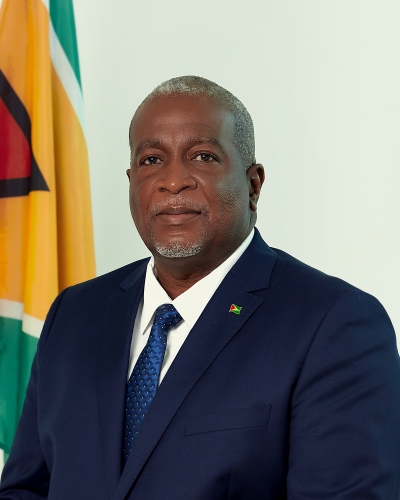Prime Minister Mark Phillips has called on states within the Amazon region to find viable solutions to combat the serious challenges faced but he contended that environmental protection must not “translate to the absence of development” in the respective countries.
This is according to a release yesterday from the Office of the Prime Minister. Observers say that Phillips’ statement to the conference underlines the government’s intention to rapidly pursue oil extraction and other developments that could have an impact on the environment such as highways.
Phillips made the remarks on Tuesday at the opening of the Amazon Cooperation Treaty Organization (ACTO) in Belem, the capital of the state of Para, Brazil.
Eight South American nations that share the Amazon rainforest are a part of the meeting with the objective of reaching a broad agreement on preserving the critical region.
“If we continue on our current trajectory, the prognosis offers no relief in sight. The status quo of the environment is clearly on a downward spiral, and it is in the interest of future generations that a concerted effort be made to arrest the situation,” he stated.
According to the Prime Minister, the challenges of illegal forest activities, deforestation, and forest fires, threaten the delicate equilibrium of the basin and the livelihoods of indigenous and other communities. Therefore, he said, the states that are part of the Amazon must bear the responsibility for safeguarding it for the benefit of current and future generations.
“We must be resolute in our efforts to combat these threats and to ensure that our initiatives under the ACTO cooperation programme have a strong focus on the sustainable management of forests, forest preservation and forest conservation,” the Prime Minister said.
Guyana has had to battle deforestation caused by mining.
During his address, Phillips reminded South American leaders of Guyana’s commitment to preserving and conserving the environment.
“In keeping with our commitment to the sustainable development of our natural resources, Guyana, as an emerging oil state, continues to direct its efforts towards the diversification of its energy portfolio to include renewable energy sources,” he told his audience. Critics have said that Guyana is not moving fast enough in this area and is presently making a commitment to the use of dirty natural gas for energy purposes for the coming decades.
Adverting to the “sacred” relationship between indigenous people and the land and the forest, Phillips said that “It is therefore imperative that they continue to play an integral part of the ACTO sustainable development mechanism”.
He added that the Amazon states must remain united for the forests and continue to advocate for the adoption and implementation of Jurisdictional and Nested REDD+ Frameworks within voluntary and compliance market-based structures.
Guyana is to benefit from US$750m of such credits under an arrangement with American oil company, Hess.
These REDD+ Frameworks, he said, “can catalyse climate finance, information exchange, expertise sharing, and collective problem-solving, fostering a united effort in addressing climate mitigation and adaptation goals at the regional level.”
Advanced policy pathways for High Forest Low Deforestation countries with high carbon ecosystems, such as mangroves, peatlands, mature forests and marshes to access climate finance must be a part of the discussions, not only at this summit but also at the upcoming CoP 28, in Dubai, United Arab Emirates.
“Let us seize this historic opportunity as leaders of countries responsible for the Amazon rainforest to demonstrate our determination and resolve in tackling the environmental challenges and forging a sustainable, equitable future for all,” the Prime Minister said.
ACTO’s member nations are Bolivia, Colombia, Ecuador, Guyana, Peru, Suriname, Venezuela and Brazil.
Reuters on Tuesday said that the eight nations agreed to a list of unified environmental policies and measures to bolster regional cooperation but failed to agree on a common goal for ending deforestation.
Brazilian President Luiz Inacio Lula da Silva, who has staked his international reputation on improving Brazil’s environmental standing, had been pushing for the region to unite behind a common policy of ending deforestation by 2030 – one he has already adopted.
Instead, the joint declaration issued on Tuesday in Belem created an alliance for combating forest destruction, with countries left to pursue their own individual deforestation goals.
The Reuters report said that the failure of the eight Amazon countries to agree on a pact to protect their own forests points to the larger, global difficulties of forging an agreement to combat climate change. Many scientists say policymakers are acting too slowly to head off catastrophic global warming.










